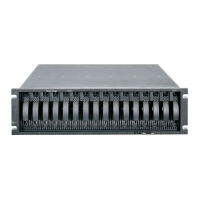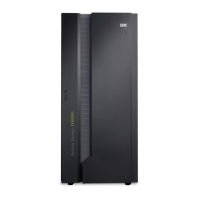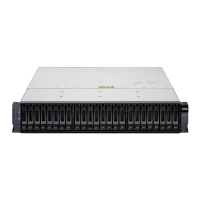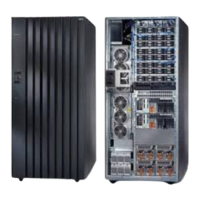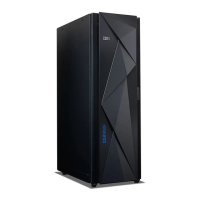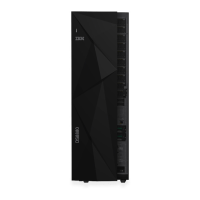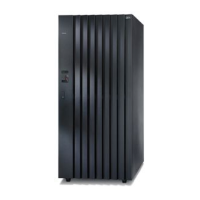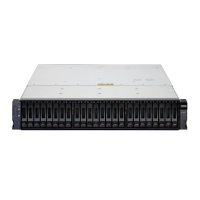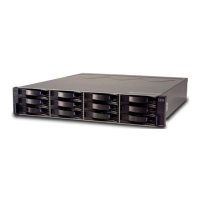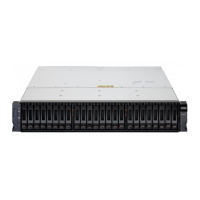controller B offline. (Controller A is the controller designated to receive all I/O
activity when the interconnect-battery unit is removed from the storage
subsystem.) By placing controller B offline, you route all controller and I/O activity
through controller A. This maintains data availability while the interconnect-battery
unit is removed, preventing any problems that would normally arise from the loss
of communication between controllers A and B.
Attention: Before you remove the interconnect-battery unit, you must verify
that controller A is in an optimal state, and the power supply and fan unit FRU
that is connected to controller A (the right power supply) is optimal. Never
remove the interconnect-battery unit when controller A or the power supply and
fan unit FRUs are not in an optimal state.
Multiple component failures
When multiple components in the DS5100 and DS5300 fails, the behavior of the
Service Action Allowed and Needs Attention LEDs can vary from situation to
situation. In some cases, multiple Service Action Allowed status LEDs light when
their corresponding Needs Attention LEDs are lit. In other cases, none of the
Service Action Allowed status LEDs light when their corresponding Needs Attention
LEDs are lit. This variance exists because the ability to remove a component
depends on the different data availability dependencies of the storage subsystem
components.
If replacing any one of the multiple components that have their Needs Attention
LEDs lit will cause the DS5100 and DS5300 to shut down, the Service Action
Allowed status LEDs will not light on any of the components that need attention. For
example, if both the right power supply and fan unit (which is linked to controller A)
and controller B need attention, then neither of the Service Action Allowed status
LEDs on these components would light. Removing the controller B before replacing
the failed right power supply and fan unit would cause controller A to lose power,
resulting in a loss of data availability. (This linkage exists because the power
distribution from each power supply and fan unit runs through the controller
physically connected to that power supply and fan unit.)
However, if replacing any one of the multiple components that have their Needs
Attention LEDs lit will not cause the DS5100 and DS5300 to shut down, then the
Service Action Allowed status LEDs will light on all of the components that need
attention. For example, if the right power supply and fan unit (which is linked to
controller A) and controller A both need attention, then the Service Action Allowed
status LEDs on both of these components would light, indicating that either
component can be replaced first.
Important: In this situation (in which replacing any one of the multiple components
that have their Needs Attention LEDs lit will not cause the DS5100 and
DS5300 to shut down), after you remove one failed component, the
Service Action Allowed status LEDs on the remaining components that
need attention might turn off. This change in the Service Action Allowed
status LEDs indicates that removing additional components now might
cause the storage subsystem to shut down.
For example, if both power supply and fan units have failed, the Needs
Attention and the Service Action Allowed status LEDs would be lit for
both components. However, when you remove one power supply and
fan unit from the system, the Service Action Allowed status LED on the
remaining power supply and fan unit turns off, indicating that you now
cannot remove the second power supply and fan unit (because the
Chapter 5. Replacing components 169

